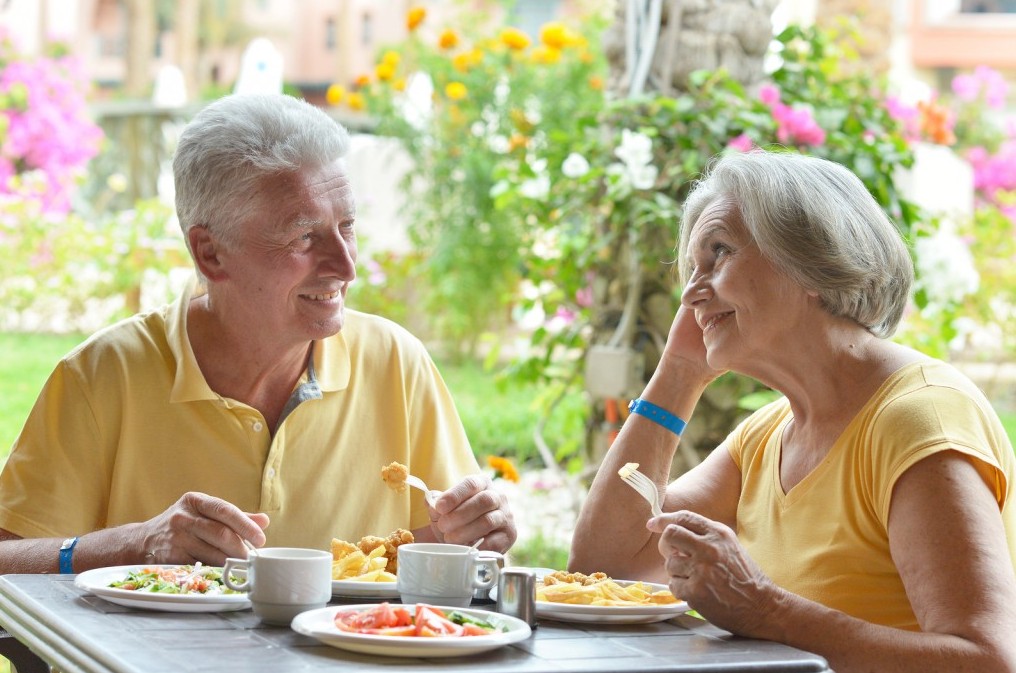
So, you will be turning 60 on your next birthday and are looking forward to the celebrations. However, there is also a dormant anxiety resting in your mind. You are secretly worried about-facing the travails of old age which is a bitter pill all have to swallow.
However, if you are proactive about your diet, you can easily avoid the pains and troubles. Old age does come with its flip side and it is quite natural to worry about health problems. Still, changing your diet in old age goes a long way in helping you grow old gracefully and enjoy life to the fullest. So, what are those changes and how do you inculcate the same in your routine? Here is the guidebook.
Changing your food pattern in old age
1. Balanced diet is the key – An oft-repeated health advice but most ignored, a balanced diet is quite easy to attain and keeps you healthy, without asking you to make any extra effort. If you make sure that your breakfast, lunch and dinner have got all the necessary elements i.e. carbohydrate, protein, vitamin, minerals, fiber and fluids then you can easily stay healthy. To make this possible, you need to eat a variety of foods, with ample amount of fresh fruits, vegetables, grainy/brown carbohydrate food, eggs, meat, fish, lentils and beans.
2. Cook smart – Opt for steamed vegetables. No! We are not saying boiled food. Boiling drains out the nutrients. You can choose dips and sauces of your choice with steamed carrots, potatoes, cabbage and cauliflowers.
3. Eat fiber rich food – Most of the health related problems crop up because of improper digestion whose root can be traced to constipation. To avoid it, you need to eat fiber rich food that you can find in oats, salads, fruits and green vegetables. To give a twist to the taste, you can make a soup or stew with small amount of spices or herbs. Eat brown bread, bran cereal and other such food items.
4. Ensure proper intake of water and fluids – Water helps your body to get rid of toxins, thereby, keeping your skin tight and young. In old age, it is very important to drink enough water. Beverages like fruit juice, green tea are also beneficial and fulfill the fluid criteria pretty well.
5. Vitamin D is very important – Bones bear the brunt of old age more than any other body part and for women; it is a great risk factor. To avoid breakages and fractures, you need to increase your intake of dairy products like milk, cheese, yoghurt and soya milk. Also, get out on sunny days and soak yourself in the “sunshine vitamin”.
6. Proteins – At your age, dividing your protein intakes equally among meals is recommended. It is important to vary your sources of protein instead of relying on red meat, including more fish, beans, peas, eggs, nuts, seeds, and low-fat milk and cheese in your diet.
7. Vitamin B12 – To keep your nerves and blood flow active, at the old age, additional supplement of vitamin B-12 is needed. Your stomach produces less gastric acid making it difficult to absorb vitamin B12. Get the recommended daily intake (2.4 mcg) of B12 from fortified foods or a vitamin supplement. Vitamin B 12 is found in meat, fish, poultry, eggs, and dairy products.
Don’t say goodbye to comfort food altogether – Old age is not about bland and basic food. It is about healthy food which can be mingled with snacks, sweets and wine at intervals to retain variety and joy. Alcohol is good in moderation and you can also snack on healthy items.
There is an old saying “you are what you eat” and truly so. If you eat well, you will look well and be well. Incorporating changes in diets is not that difficult as it is made out to be and once you start the process, you are sure to cherish the benefits that come with it. In addition to the change in your diet, ensure you keep a close watch on what suits your body. No food is a compulsion. Anything that you eat should be accepted by your body. It is important to understand, that at this sensitive age, your body will not accept everything you want to eat.